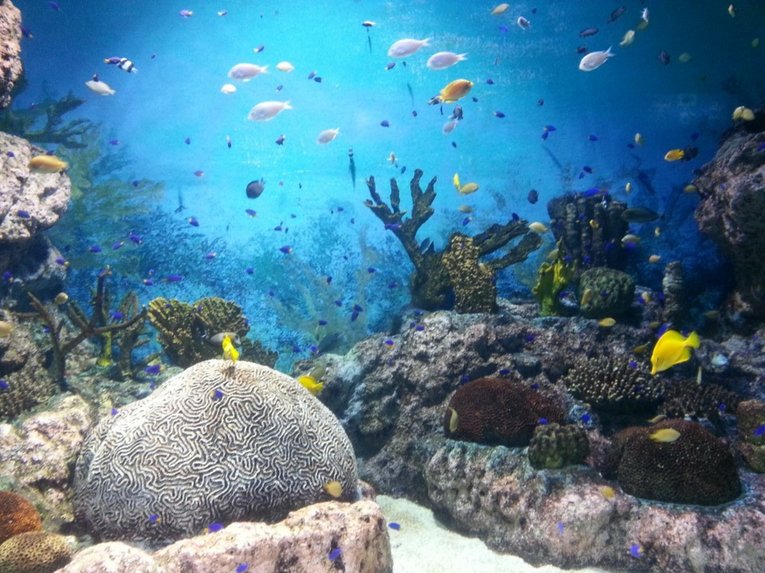
Positive ocean news: October edition
2 minute read
We all deserve some good news – especially our ocean – so we’ve rounded up some top positive ocean news stories from the last month.
World’s largest ocean reserve benefits nearby fish populations

Credit: 광 영
Papahānaumokuākea in Hawaii, the world’s largest fully protected ocean reserve, spans 580,000 sq miles (1.5m sq km) and is inhabited by an abundance of marine life such as black coral, whales, and turtles.
Fishing is banned within the reserve, but a new study has found that it’s also having a positive impact on fish populations in the surrounding ocean, with populations of yellowfish tuna increasing by 54% between 2016 (when the reserve was created) and 2019, and bigeye tuna rising by 12%.
Read the full article on the Guardian website
Thousands take action to ban harmful ocean chemicals
The recently launched campaign Stop Ocean Poison campaign calls on the UK Government ban the use of harmful ‘forever chemicals’ which enter and build up in the ocean, with detrimental effects on marine life. Thousands of people supported the campaign, signing the petition and emailing their MPs, demanding action from the government.
Greenland sharks receive protection in international waters
Indonesian government pays fishermen to collect plastic while they’re at sea

Credit: Anastasia Palagutina
Indonesia, one of the largest contributors of plastic waste, is aiming to reduce the amount of its plastic entering the ocean by 70% by paying fishermen to collect plastic when they’re out at sea. Fishermen who collect 4kgs of plastic per day will be paid a higher amount than they’d get catching fish to sell at markets.
Read the full article on the Good News Network
Wasser 3.0 creates whirlpools to remove microplastics from water

Credit: Dotted Yeti
German company, Wasser 3.0, has created whirlpools which clump microplastics into balls that rise to the surface of the water, where they can be easily removed with a sieve. The new and affordable process can be used in freshwater, seawater, and wastewater, and may be a simple solution to help tackle the plastic problem.
Read the full article on One Green Planet





